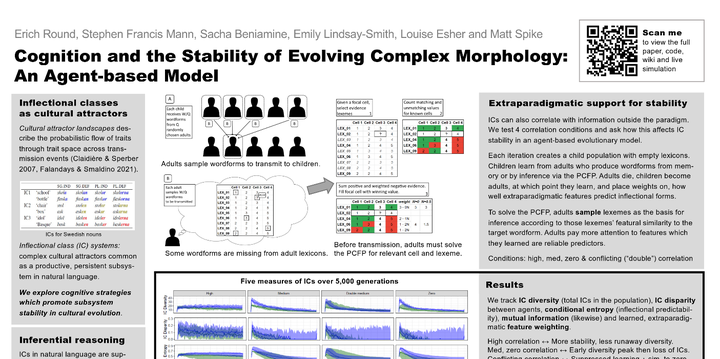
Abstract
We present an agent-based model of the evolution of inflectional paradigms. We specifically investigate individuals’ inferential policies when categorising unknown wordforms, and the impact of those policies on large-scale patterns of evolution in inflection systems across generations. We find that while stronger biases due to morphology-external correlations among lexemes generally enable agents to categorise them more consistently, the way those correlations are distributed in the grammar may actually impede reliable categorisation. Our model is publicly available and widely extensible, and we discuss several possible additions that could be made in order to investigate further features of inflection systems, cognitive policies and demographic organisation. We highlight further parameters of interest for future work aiming to more fully understand the complex cultural evolution of complex morphological systems.